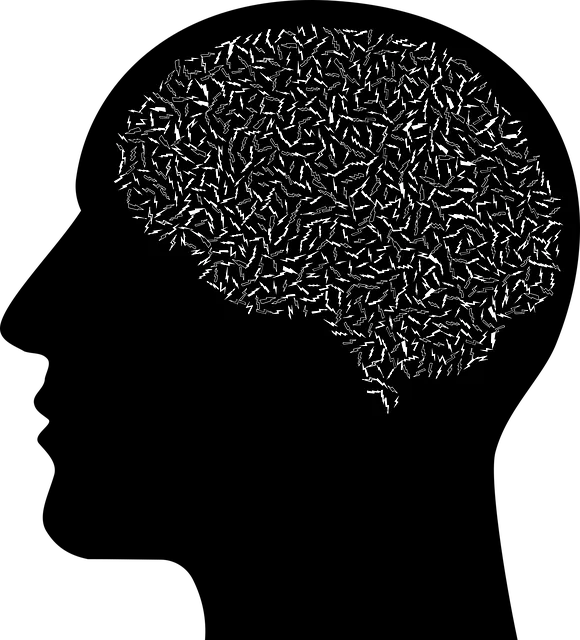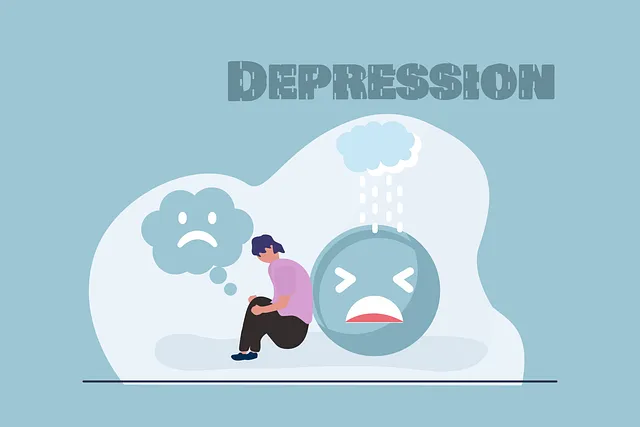Kaiser Permanente mental health Centennial prioritizes holistic well-being through education programs that foster positive thinking. These initiatives empower individuals to manage stress, anxiety, and enhance quality of life by promoting emotional intelligence and resilience. Regular exercise, supported by organizations like Kaiser Permanente, boosts neurotransmitters associated with happiness and mood regulation. Daily positive thinking exercises, integrated into wellness routines, cultivate positivity and mental well-being. Overcoming challenges through self-awareness and effective coping strategies enhances resilience. Kaiser Permanente mental health Centennial measures success using multifaceted metrics, continually refining programs based on feedback to improve overall mental health.
“Discover the transformative power of positive thinking through exercise at Kaiser Permanente Centennial. This comprehensive guide explores how physical activity acts as a catalyst for cultivating a resilient mindset, enhancing overall mental well-being. We delve into evidence-based strategies, offering practical tips for integrating daily practices that foster optimism and reduce stress.
Learn from Kaiser Permanente’s approach to measure success, evaluating the impact on mental health and providing a roadmap for sustainable positive thinking habits.”
- Understanding Positive Thinking: Unlocking Mental Well-being at Kaiser Permanente Centennial
- The Role of Exercise in Fostering Positive Mindset
- Practical Implementation Strategies for Daily Practice
- Overcoming Challenges and Sustaining Positive Thinking Habits
- Measuring Success: Evaluating the Impact on Mental Health with Kaiser Permanente
Understanding Positive Thinking: Unlocking Mental Well-being at Kaiser Permanente Centennial

At Kaiser Permanente Centennial, understanding positive thinking goes beyond mere optimism; it’s a powerful tool for unlocking mental well-being. The organization recognizes that cultivating a positive mindset is integral to overall health and happiness. Through various mental health education programs design, they empower individuals to take charge of their emotional regulation and mood management. These initiatives aim to transform the way people perceive challenges, encouraging resilience and a brighter outlook on life.
By integrating positive thinking exercises into their healthcare framework, Kaiser Permanente Centennial promotes a holistic approach to mental health. This strategy not only helps patients manage stress and anxiety but also fosters a sense of inner strength and contentment. As a result, individuals become better equipped to navigate life’s twists and turns with grace and optimism, ultimately enhancing their overall quality of life.
The Role of Exercise in Fostering Positive Mindset

Regular exercise serves as a powerful tool to cultivate and sustain a positive mindset, as championed by organizations like Kaiser Permanente that prioritize mental health in Centennial and beyond. Physical activity triggers the release of neurotransmitters such as serotonin and endorphins, known for their roles in regulating mood and promoting feelings of happiness and relaxation. This biological response not only enhances overall well-being but also improves cognitive functions, including emotional intelligence – the ability to recognize and manage one’s own emotions, as well as those of others.
By engaging in regular exercise routines, individuals can effectively combat stress, anxiety, and other mental health challenges. The rhythmic nature of movement provides a sense of control and grounding, helping to quiet the mind and alleviate symptoms of anxiety. Moreover, the social aspect of group fitness classes or team sports can foster a sense of belonging and community, contributing to a positive self-image and emotional resilience.
Practical Implementation Strategies for Daily Practice

Implementing a daily positive thinking exercise routine can be a transformative practice, especially when incorporated into your existing wellness regimen, like those promoted by Kaiser Permanente mental health Centennial programs. To make this shift practical and sustainable, consider tailoring your approach to fit your lifestyle. Start small, setting aside just 10-15 minutes each day for mindfulness or gratitude practices. Apps designed for mental health education programs can be a valuable tool, offering guided meditations and positive affirmation exercises tailored to reduce anxiety relief and combat mental illness stigma.
Customize your practice based on your preferences. Some people thrive with structured routines, while others prefer spontaneous moments of reflection. Incorporate activities like journaling, where you note down three things you’re grateful for each day, or engage in mindful walking, focusing on your senses as you move. Regularity is key; aim to make this new habit a non-negotiable part of your daily schedule, just like brushing your teeth or exercising. Through consistent practice, these strategies can help cultivate a more positive mindset and improve overall mental well-being.
Overcoming Challenges and Sustaining Positive Thinking Habits

Overcoming challenges is an integral part of fostering positive thinking habits, especially in a fast-paced and demanding world like the one we live in today. Mental health professionals at Kaiser Permanente Centennial understand that life’s obstacles can often leave individuals feeling overwhelmed and disheartened. However, by incorporating self-awareness exercises into their daily routines, professionals can enhance their resilience and develop effective coping strategies. These practices enable them to navigate through stressful situations, ensuring they maintain a positive mindset even amidst challenges.
Sustaining these habits requires consistent effort and dedication. Mental health professionals are encouraged to engage in regular reflection and practice mindfulness to stay grounded. Building confidence through achievable goals and celebrating small wins can significantly contribute to long-term success. Additionally, risk management planning becomes crucial, allowing professionals to anticipate potential triggers and develop proactive measures. By adopting these strategies, mental health practitioners at Kaiser Permanente Centennial can not only excel in their careers but also model positive thinking for the communities they serve.
Measuring Success: Evaluating the Impact on Mental Health with Kaiser Permanente

At Kaiser Permanente Centennial, we’ve recognized the profound impact that positive thinking exercises can have on mental health. Our approach involves evaluating success through a multi-faceted lens, assessing both subjective and objective improvements in our participants’ well-being. We measure the effectiveness of our programs by gauging changes in stress levels, mood stability, and overall life satisfaction using standardized questionnaires and self-reported surveys.
In addition to these metrics, we actively track the adoption of communication strategies and social skills training within our workshops, observing how participants integrate these into their daily lives. The feedback from both our clients and facilitators plays a crucial role in refining our Stress Management Workshops Organization, ensuring that we continuously enhance the positive impact on mental health.
Implementing positive thinking exercises, as demonstrated by Kaiser Permanente’s initiatives at Centennial, offers a powerful approach to enhancing mental well-being. By integrating these strategies into daily routines, individuals can foster a more optimistic mindset and improve their overall mental health. With consistent practice and the support of resources like those provided by Kaiser Permanente, sustainable changes in outlook are achievable. This article has explored the benefits, practical steps, and measurement techniques, equipping readers with valuable insights to embark on their journey towards a brighter, healthier mind, all while acknowledging the ongoing importance of professional guidance from healthcare providers like Kaiser Permanente.






